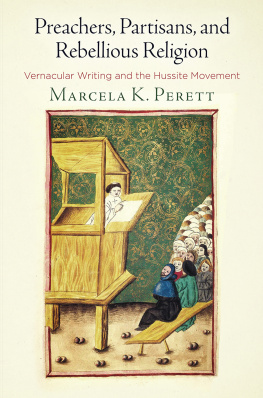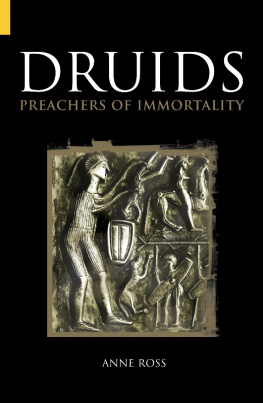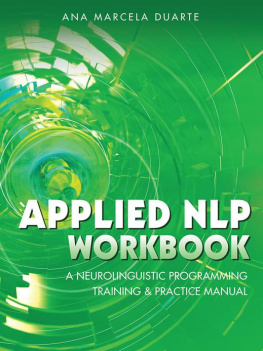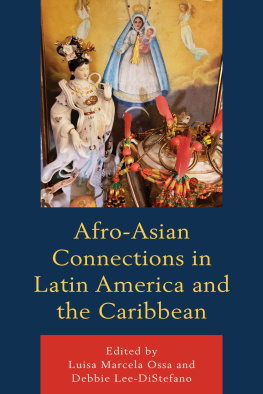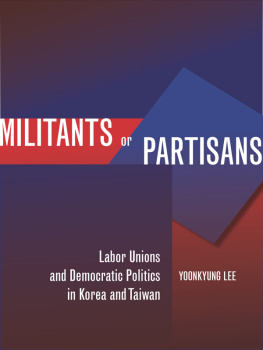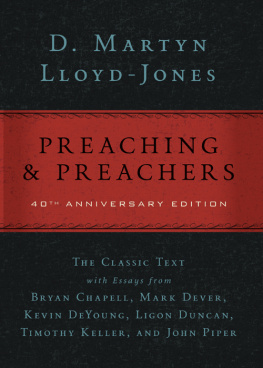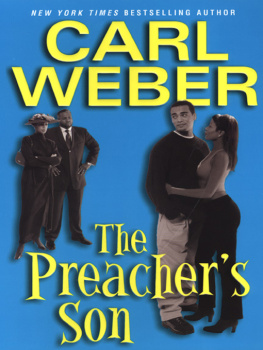Perett Marcela K. - Preachers, Partisans, and Rebellious Religion
Here you can read online Perett Marcela K. - Preachers, Partisans, and Rebellious Religion full text of the book (entire story) in english for free. Download pdf and epub, get meaning, cover and reviews about this ebook. year: 2019, publisher: University of Pennsylvania Press, genre: Religion. Description of the work, (preface) as well as reviews are available. Best literature library LitArk.com created for fans of good reading and offers a wide selection of genres:
Romance novel
Science fiction
Adventure
Detective
Science
History
Home and family
Prose
Art
Politics
Computer
Non-fiction
Religion
Business
Children
Humor
Choose a favorite category and find really read worthwhile books. Enjoy immersion in the world of imagination, feel the emotions of the characters or learn something new for yourself, make an fascinating discovery.
- Book:Preachers, Partisans, and Rebellious Religion
- Author:
- Publisher:University of Pennsylvania Press
- Genre:
- Year:2019
- Rating:4 / 5
- Favourites:Add to favourites
- Your mark:
- 80
- 1
- 2
- 3
- 4
- 5
Preachers, Partisans, and Rebellious Religion: summary, description and annotation
We offer to read an annotation, description, summary or preface (depends on what the author of the book "Preachers, Partisans, and Rebellious Religion" wrote himself). If you haven't found the necessary information about the book — write in the comments, we will try to find it.
Preachers, Partisans, and Rebellious Religion — read online for free the complete book (whole text) full work
Below is the text of the book, divided by pages. System saving the place of the last page read, allows you to conveniently read the book "Preachers, Partisans, and Rebellious Religion" online for free, without having to search again every time where you left off. Put a bookmark, and you can go to the page where you finished reading at any time.
Font size:
Interval:
Bookmark:

Preachers, Partisans, and Rebellious Religion
THE MIDDLE AGES SERIES
Ruth Mazo Karras, Series Editor
Edward Peters, Founding Editor
A complete list of books in the series is available from the publisher.
Preachers, Partisans, and Rebellious Religion

Vernacular Writing and the Hussite Movement
Marcela K. Perett

UNIVERSITY OF PENNSYLVANIA PRESS
PHILADELPHIA
Copyright 2018 University of Pennsylvania Press
All rights reserved. Except for brief quotations used for purposes of review or scholarly citation, none of this book may be reproduced in any form by any means without written permission from the publisher.
Published by
University of Pennsylvania Press
Philadelphia, Pennsylvania 19104-4112
www.upenn.edu/pennpress
Printed in the United States of America on acid-free paper
1 3 5 7 9 10 8 6 4 2
Library of Congress Cataloging-in-Publication Data
Names: Perett, Marcela Klicova, author.
Title: Preachers, partisans, and rebellious religion : vernacular writing and the Hussite movement / Marcela K. Perett.
Other titles: Middle Ages series.
Description: 1st edition. | Philadelphia : University of Pennsylvania Press, [2018] | Series: Middle Ages series | Includes bibliographical references and index.
Identifiers: LCCN 2018008681 | ISBN 9780812250534 (hardcover : alk. paper)
Subjects: LCSH: Hus, Jan, 1369?1415. | HussitesCzech RepublicBohemiaHistory. | Religion and literatureCzech RepublicBohemiaHistory. | Bohemia (Czech Republic)Church history. | HussitesCzech RepublicBohemiaHistorySources.
Classification: LCC BX4915.3 .P47 2018 | DDC 284/.3094371dc23
LC record available at https://lccn.loc.gov/2018008681
For Benot and John Amaury
Contents

Introduction
Describing the situation in Prague in 1421, Lawrence of Bezov, the chief chronicler of the Hussite movement in Bohemia, records a surprising incident. He tells of a group of women in the New Town district of Prague, who were so dissatisfied with the way in which the councilmen managed the religious affairs in their district that they wrote what we might call an open letter to them. In the letter, recorded in the vernacular in an otherwise Latin chronicle, the women complain that numerous priests in Prague do not believe that the Eucharist really is Gods body and blood and that this heresy is taught to the laity. The women write: We are afraid that many of the new priests, who hold heretical beliefs, continue to be appointed to parishes where they blaspheme against God and doctrine and against the rituals of the church. Meanwhile, you, councilmen, watch it happen and do nothing to stop it . Therefore, we beg you to take action, for example, you could tell the priest in Po that you will no longer tolerate the violence that he inflicts on the holy sacrament. If you do not wish to do this, if you continue to ignore the true faith, we will be forced to turn against you and so help us God.
This petition captured the squabbles between two major pro-reform factions (Prague and Tbor), characteristic of the period between 1419 and 1436, which was generally seen as the main phase of the Hussite revolution and is the central focus of this book. For most of the period, the two main reform factions struggled against each other for adherents and for control over parishes in Prague and across Bohemia, with the Eucharist looming as the most divisive subject, as some were swayed by Wycliffite and other reform ideas and others rejected them.the reforms leaders, but the example shows that they knew enough about them to debate with each other and to form their own opinions. The narrative needs to be refocused to take into account the real importance of the womens official complaint: it shows that theological debates were not confined to the clerical caste, nor were they confined to Latin. The women clearly understood the basic ramifications of the debate and officiallyand in their vernacularprotested against the priests Wycliffite understanding of the mass, even threatening disobedience if their request, which was theological in nature, went unheeded. Moreover, the women were convinced that theyand, this is important, not their priestheld the true faith and swore to commit acts of civil unrest, such as turning against their councilmen, in order to promote what they understood this to be. This shows that disagreements about what constituted true faith divided also the laity, who held their own conclusions with impressive confidence, even in the face of powerful city magistrates.
Such was the nature of religious disagreements in fifteenth-century Bohemiaone mans true faith was another mans heresy, but accusations to that effect did little to weaken the determination of those who held it. The above example illuminates the specifically late medieval context of this disagreement. It involved proliferation of a semi-learned doctrine (based in an academic program) among a highly motivated laity, by clerics, often university educated and in possession of a good living, but who nevertheless distanced themselves from the institutional clerics, harshly criticizing the established church and its servants. Open debates among people and clergy about central teachings and claims of the church did not first begin in what is called the Protestant Reformation. We see it full-blown in Prague, the late medieval imperial capital, one of the most important cities in the European world at that time, a full century earlier.
Vernacular Writings: Indispensable Yet Often Ignored
Given how much attention the reform leaders in Bohemia paid to their lay followers, it is striking how little those who study these leaders have. Most of the scholarly work on the Hussites has revolved around the careers of the movements movers and shakers, their treatises, their ideas and the origins of those ideas, their political and diplomatic negotiations. The two most extensive and influential works on the Hussite movement, Howard Kaminskys comprehensive History of the Hussite Revolution and Frantiek mahels Die hussitische Revolution, both focus on the Latin texts that gave shape to the movement. Kaminsky is primarily interested in the intellectual history of the Hussite revolution and deals with the writings and cogitations of the revolutions erudite leaders, whereas mahel offers a social portrait of the movement in order to round out his discussion. And although both of these influential scholars take into consideration the popular element, their analyses deal mainly with Latin treatises and compositions, perpetuating the tacit assumption that the really interesting and important conversation was the one conducted in Latin. Only more recently have scholars turned their attention to the Hussite movements vast vernacular output in an attempt to understand the importance it held for the reform leaders themselves, who poured tremendous energy into it throughout the entire period.
In the course of the Hussite reform, the emphasis on vernacular communication was so great that the inherited literary genres were themselves completely transformed. Literary genres that had previously enjoyed high popularity among the laity were no longer perpetuated and practically disappeared. In the span of a mere generation a lasting change was wrought in how theological arguments were conducted, how they were decided, and who participated.
Next pageFont size:
Interval:
Bookmark:
Similar books «Preachers, Partisans, and Rebellious Religion»
Look at similar books to Preachers, Partisans, and Rebellious Religion. We have selected literature similar in name and meaning in the hope of providing readers with more options to find new, interesting, not yet read works.
Discussion, reviews of the book Preachers, Partisans, and Rebellious Religion and just readers' own opinions. Leave your comments, write what you think about the work, its meaning or the main characters. Specify what exactly you liked and what you didn't like, and why you think so.

